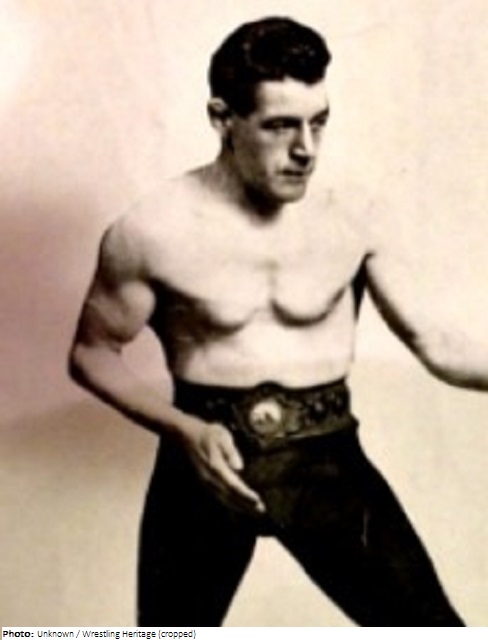
| Roles | Competed in Olympic Games |
|---|---|
| Sex | Male |
| Full name | Harold•Angus |
| Used name | Harold•Angus |
| Born | 10 November 1904 in Wigan, England (GBR) |
| Died | 30 October 1940 (aged 35 years 11 months 20 days) in Doncaster, England (GBR) |
| NOC |  Great Britain Great Britain |
Born in Wigan, Harold Angus was one of 10 children of a local miner and went on to become a wrestling pioneer. Following the introduction of All-In wrestling in 1930, Angus decided to make some money from the sport and, after losing his amateur status in February 1931, decided to gamble on becoming a full-time professional.
His amateur career had seen him win the British featherweight title in 1928, when he also travelled to the Amsterdam Olympics, where he lost his featherweight quarter-final bout to the Canadian Danny McDonald. Angus represented Great Britain again at the 1929 European Championships in Paris and, in 1930, representing England, he won a lightweight silver medal at the British Empire Games in Hamilton, Canada, losing to another Canadian, Howie Thomas.
After turning professional, while the country was facing an economic downturn, Angus was fortunate because the popularity of professional wrestling was on the up. Angus was a popular member of the Northern circuit before being asked to fight all around Britain. He fought, and beat, many big names of the day, at some of the country’s top venues, and in 1938 he was regarded as the British and European welterweight champion, as well as the European claimant to the World title.
A few days after his final appearance in the ring, Angus was accidentally shot in the arm while shooting rabbits near his home at Branton, Doncaster, on Saturday 26 October 1940. He was rushed to Doncaster Infirmary where he died four days later, at just 35 years-of-age. Harold’s older brothers, James and William, were also wrestlers, but did not have the same success as Harold.
| Games | Discipline (Sport) / Event | NOC / Team | Pos | Medal | As | |
|---|---|---|---|---|---|---|
| 1928 Summer Olympics | Wrestling |  GBR GBR |
Harold Angus | |||
| Featherweight, Freestyle, Men (Olympic) | =7 |